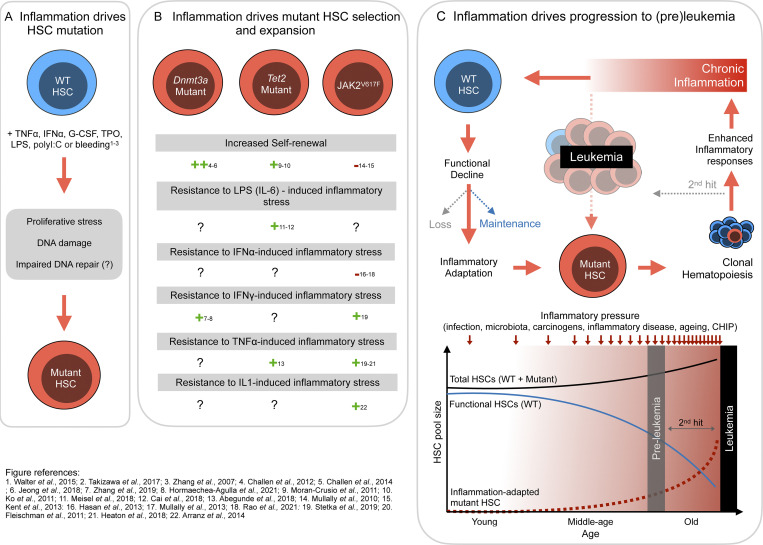Figure 3.
Proposed mechanisms of HSCs inflammation-driven evolution. Schematic representation of the three main processes by which sustained inflammation drives HSC somatic evolution. (A) Inflammation as a driver of mutation incidence in HSC by inducing increased proliferation stress and DNA damage. Impact of inflammation on DNA repair efficiency is unknown. (B) Inflammatory pressure leads to the selection and expansion of HSC-carrying mutations (in DNMT3A, TET, and JAK2). Depicted are the published adaptations of each mutation to inflammatory stress (++ strongly present, + present, − absent, ? unknown). (C) Speculative role of inflammation on establishment of clonal hematopoiesis and its progression to leukemia. Lifelong inflammatory exposure leads to functional decline of WT HSCs and selects inflammatory-adapted mutant HSCs that expand, leading to a preleukemic stage. Enhanced cytokine production by mutant myeloid cells further increased the systemic inflammatory load, leading to inflammatory-adapted mutant HSC clonal expansion and increasing the risk of secondary hit mutations and potential leukemia transformation.

